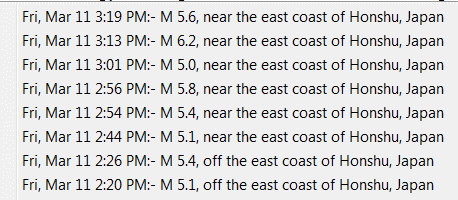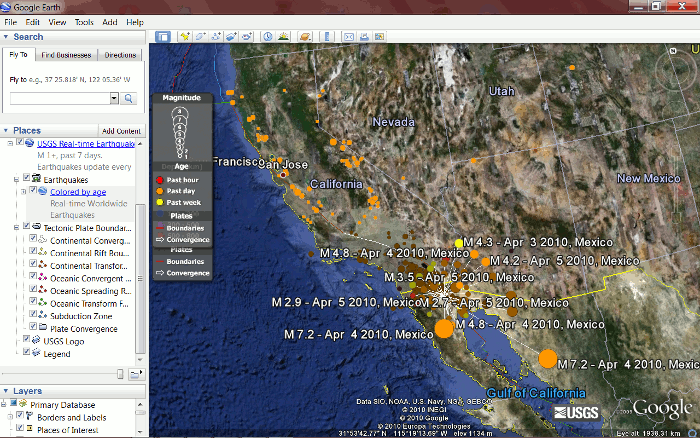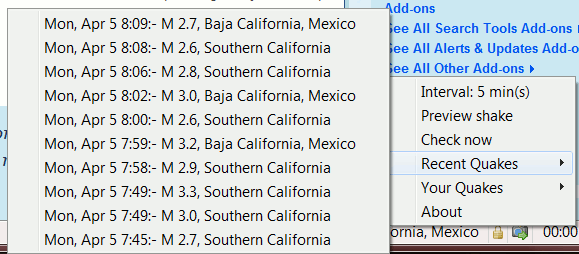As I write this the media have moved on from the 8.9 magnitude earthquake that hit Japan earlier today and are now concentrating on the tsunami that is moving across the Pacific. But those in the area originally affected by what is being called a “superquake” now have to endure aftershocks. I discovered a long time ago from friends living in earthquake zones in New Zealand, China and Turkey that the initial quake is often only the beginning of their troubles. Aftershocks can have a devastating effect on weakened buildings, infrastructure and on morale. Those of us living far from the area and who have never experienced such a disaster cannot begin to comprehend what it must be like, despite the horrific images appearing on our TV and computer screens. If you use Firefox you can at least begin to appreciate the frequency of aftershocks and their strength.
eQuake Alert (https://addons.mozilla.org/en-US/firefox/addon/2239/ or http://www.freebookzone.com/exec.php?cmd=firefox_addon) uses USGS (US Geological Survey) data and adds an alert to the status bar of Firefox showing you the magnitude and location of the latest event.
![]()
Right click on the alert and you can choose to view a list of recent quakes that also gives you date and time.

There is an additional option to “Shake browser on earthquake”. This makes your browser screen wobble when news of a quake comes through and you can set it to shake proportional to earthquake magnitude. So set your options to check the data every 1 minute and to shake your browser as part of the alert every time there is a USGS report. You may also want to set the alerts only for quakes above magnitude 5. Yes, it is extremely irritating but leave it on for 15 minutes. At least you will have an idea of what is happening and perhaps begin to understand what it must be like for those trying to survive in the quake zone.
Update: Two people have got back to me reporting that when they try to install eQuake Alert they are told that it has not been updated for their latest version of Firefox. I forgot that I have the Nightly Tester Tools add-on installed, which lets me “Force Addon Compatibility”. If you want to give eQuake Alert a try the Nightly Tester Tools is at https://addons.mozilla.org/en-US/firefox/addon/nightly-tester-tools/. I have not so far experienced any problems by forcing eQuake Alert compatibility with the latest version of Firefox.


